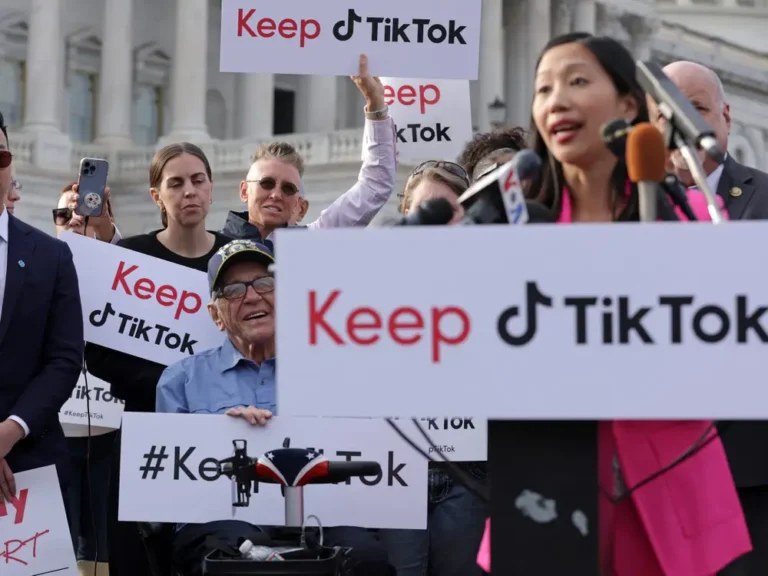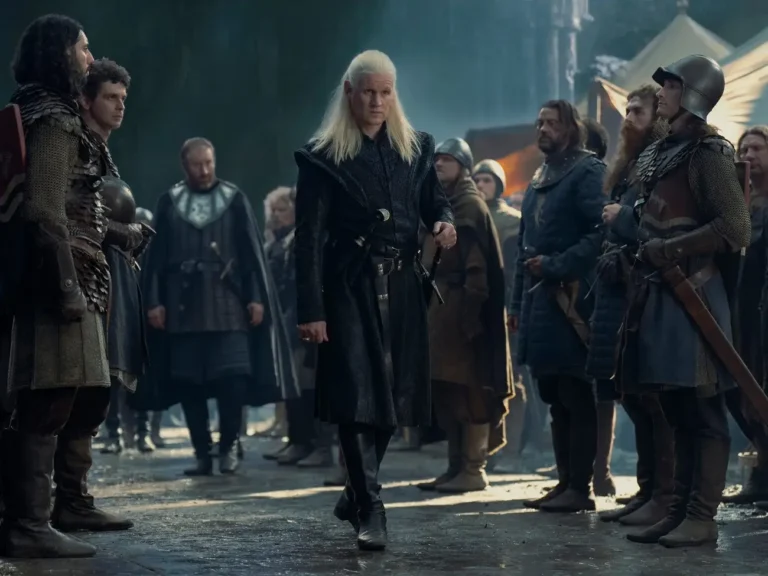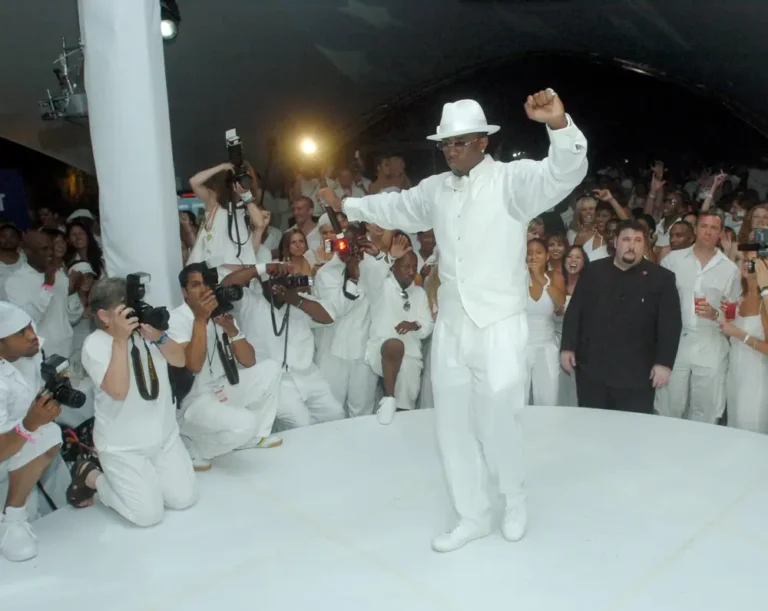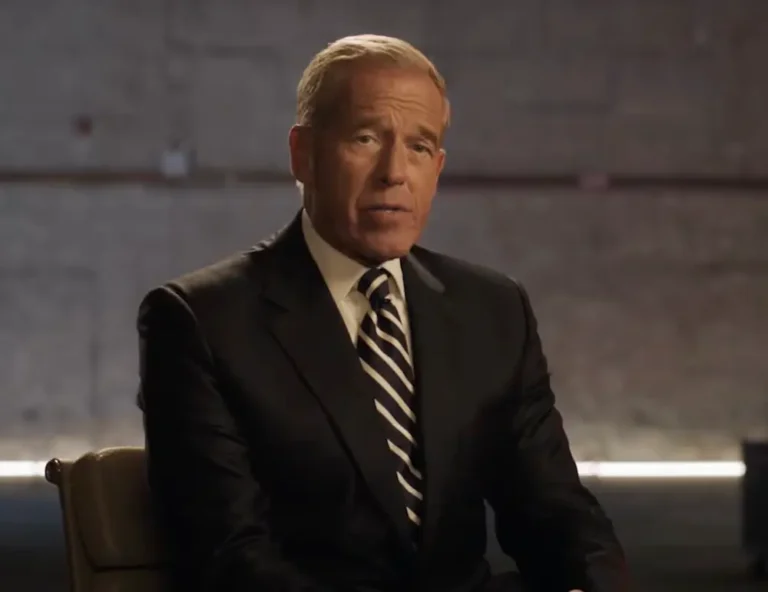Paul Mescal’s ‘Gladiator II’ character appears in the first movie — here’s a refresher on who Lucius is

Paul Mescal as Lucius in “Gladiator II.”
In “Gladiator II,” Paul Mescal’s Lucius is a vengeful heir to the throne who’s out for blood — but in the first “Gladiator” film, his character is just an innocent child who mucks up his parents’ coup d’état.
“Gladiator II” picks up a few decades after Ridley Scott’s 2000 film, which starred Russell Crowe and Joaquin Phoenix. Long after general-turned-gladiator Maximus Decimus Meridius (Crowe) and Emperor Commodus (Phoenix) killed each other in battle, long-lost heir Lucius returns to Rome as a gladiator after the empire conquers his new home, Numidia.
Compared to his appearance in the first film, Lucius is a bit difficult to recognize. For one, he’s no longer a child. More importantly, however, his time away from Rome has fostered a deep resentment toward the empire — and a desire to turn away from his lineage as the son of Empress Lucilla (Connie Nielsen, who reprises her role in the new film).
Here’s what you need to know about Lucius, and how Mescal’s storyline in “Gladiator II” connects to the first film.
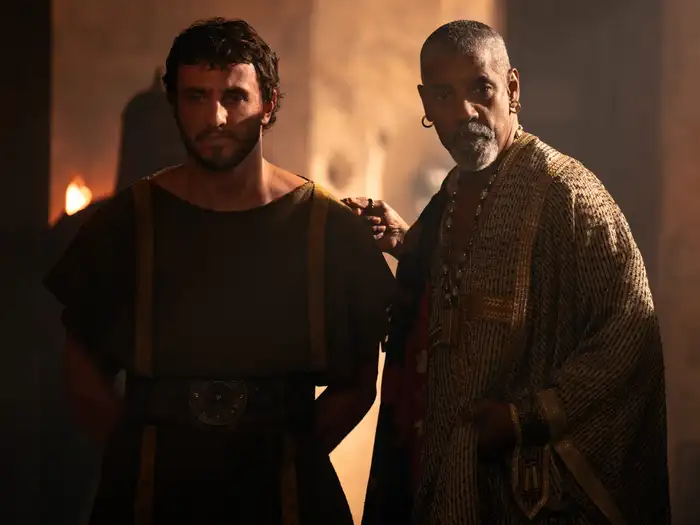
Paul Mescal and Denzel Washington as Lucius and Macrinus in “Gladiator II.”
Lucius is a child in the 2000 film ‘Gladiator’
In the first “Gladiator,” Rome falls to chaos after emperor Marcus Aurelius appoints Maximus, one of his generals, as his successor instead of his son, Commodus. In turn, Commodus kills his father, and does the same to Maximus’ family when the general refuses to swear loyalty to him. Maximus ends up enslaved and eventually winds up fighting for his freedom at the Colosseum as a gladiator.
While in Rome, Maximus learns that his former soldiers are still loyal to him. Working with Lucilla, Commodus’ sister, they attempt to plan a coup to remove Commodus from power. Unfortunately, Commodus finds out about it (more on that later), quashes the plan, and challenges Maximus to a duel. Despite Commodus stabbing Maximus before the fight, Maximus defeats him but succumbs to his wounds.

Spencer Treat Clark as Lucius in “Gladiator.”
In the first film, Lucius (played by Spencer Treat Clark) is introduced as Lucilla’s young son and the heir to the throne. He and Maximus briefly meet: Lucius gleefully inquires about Maximus’ combat abilities, and tells Maximus that he’ll cheer for him in the games. Lucius also tells Maximus that he was named after his father, who is dead.
Later in the film, however, Lucius playfully spars with his uncle Commodus and pretends to be “Maximus, the savior of Rome.” The epithet clues Commodus into Maximus and Lucilla’s plan, and after stopping Maximus’ escape, he threatens Lucilla with Lucius’ life so that she will provide him with an heir of his own.
At the end of the film, when Maximus is on the edge of death, he tells Lucilla that Lucius is safe, presumably from Commodus. Lucius looks on as Maximus dies.
‘Gladiator II’ clarifies Lucius’ backstory
“Gladiator II” takes Lucius from boy to haggard man, filling in the gaps in his life after the events of the first film.
As the sequel recounts, Lucilla sent Lucius out of the city after Maximus and Commodus’ deaths to keep him safe. Eventually, he found a home in the North African kingdom of Numidia, where he settled in with a wife and took a new name. After Rome conquers the kingdom under the command of General Marcus Acacius (Pedro Pascal), Lucius gets taken back as a slave. Eventually, Macrinus (Denzel Washington) acquires him as a gladiator.
Once he arrives in Rome — and crucially, after he crosses paths with his mother Lucilla — Lucius gradually begins to accept his royal heritage again. He also learns that his true father was Maximus, the legendary gladiator who fought in the same ring.
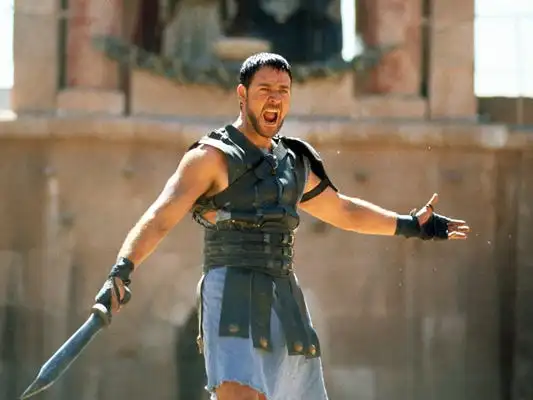
“Gladiator II” reveals that Maximus was really Lucius’ father.
“Gladiator II” includes a few glimpses of the original film, including Spencer Treat Clark as young Lucius, to hammer down the connection. By the end of the film, Lucius has donned Maximus’ armor and acknowledged his birthright as an heir to Rome. He proclaims his intent to reclaim it for the people, similar to Maximus’ mission to turn the empire into a republic in the first film.

